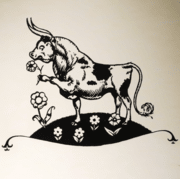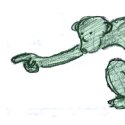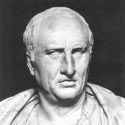|
Something amusing about Post Captain is how many peripheral characters treat the romance quadrangle with confusion. Jack and Stephen are wealthy eligible bachelors. The Williams girls are wealthy eligible debutantes in a countryside denuded of young men. How are they having trouble with this situation? I think at the start of the book a minor character says, "Any girl in need of a husband need but whistle and they'll come a-running!" Christie-Pelliere also thinks Jack is an idiot for somehow having difficulties with the situation.
|
|
|
|

|
| # ? Apr 18, 2024 11:47 |
|
In post captain isn't Stephen far from wealthy? Even Jack is closer to "comfortable with prospects" than necessarily wealthy.Huggybear posted:I think O'Brian deliberately uses Jack's political difficulties (his father, Wray, his own time in parliament) to not have to write in knighthoods and baronetcies and so forth, to keep the reader from thinking of him as the hero, so he can maintain the dual protagonist equivalency in Stephen (equally frequently reduced to the mortal plane due to his addictions and squalid lifestyle, despite his massive accomplishments in espionage) I don't think you're wrong but it also mirrors Cochrane's difficulties (which were more his own fault) and the investment affair in particular is a great beat for beat retelling of Cochrane's own trial, aside from the stockades. It's a nice device to keep Jack where we want him but it's also exactly why Cochrane kept flaming out hilariously whenever he tried a more gentlemanly land life and kept getting on a boat and changing the world instead.
|
|
|
|
First time reading through these books you're like "heh heh gettem jack!" So it makes sense when you hit Post Captain etc that you're confused by all the gentry business. Second time through you're like "oh no jack don't invest in silver mines, how will you be able to afford Sophie's new bonnet??" These books make you grow.
|
|
|
|
Almost finished with my latest readthrough, and realized I had a couple questions about The Hundred Days. What was the Surprise doing all this time? Just sitting docked at Shelmerston? It feels like a period of at least a year or two has gone by, since Jack was on the beach for a bit, then was given Bellona and sent after the slavers, then spent some time on the Brest blockade. But he's immediately got a full crew of well-trained seamen that embarrasses the Pomone with their gunnery exhibition when he's given the squadron at Funchal in The Hundred Days. And how did Maturin get back his wealth? Last I remember reading was that it had been seized in Spain, but then halfway through the book he's meeting with Sir Joseph and they're talking about how Maturin is a wealthy man again. I tried to read back but couldn't find a passage explaining it.
|
|
|
|
Phenotype posted:Almost finished with my latest readthrough, and realized I had a couple questions about The Hundred Days. What was the Surprise doing all this time? Just sitting docked at Shelmerston? It feels like a period of at least a year or two has gone by, since Jack was on the beach for a bit, then was given Bellona and sent after the slavers, then spent some time on the Brest blockade. But he's immediately got a full crew of well-trained seamen that embarrasses the Pomone with their gunnery exhibition when he's given the squadron at Funchal in The Hundred Days. In The Yellow Admiral there's a chunk of the book about fitting out the Surprise for the trip to Chile. Before that I think you're right and it was docked in Shelmerston. And Stephen gets access to his wealth again at some point after foiling the burglary attempt by the Spanish agent, I don't recall if they go into more detail
|
|
|
|
Lockback posted:In post captain isn't Stephen far from wealthy? Even Jack is closer to "comfortable with prospects" than necessarily wealthy. Thanks, the wikipedia page on Cochrane is worth the read. No Stephen is not wealthy in Post Captain if I recall correctly.
|
|
|
|
At the very end of Master and Commander O’Brian says that Stephen was now wealthy enough to buy foul tasting additives for his medicines so that “his hardy patients knew with their entire beings that they were being physicked” haha. Other than that there isn’t really a reference to his wealth at the beginning of Post Captain, outside of his family owning an estate in Spain. Hot Dog Day #82 fucked around with this message at 03:32 on May 16, 2023 |
|
|
|
Huggybear posted:Thanks, the wikipedia page on Cochrane is worth the read. It's nuts. POB had to tone down much of Cochrane's life when adapting it to Aubrey to avoid it being too over the top. IMO, the most ridiculous parts of Master and Commander are the parts he took directly from Cochrane's days on the Speedy.
|
|
|
|
Hot Dog Day #82 posted:At the very end of Master and Commander O’Brian says that Stephen was now wealthy enough to buy foul tasting additives for his medicines so that “his hardy patients knew with their entire beings that they were being physicked” haha. You are right but in that particular but I think it means more he has some prize money cash and is spending it on professional kit. The prize money for a surgeon, even in a very successful cruiser like Sophie, wouldn't make a man wealthy by the standards of the upper classes. Napoleon Nelson posted:And Stephen gets access to his wealth again at some point after foiling the burglary attempt by the Spanish agent, I don't recall if they go into more detail[/spoiler] I think Stephen regaining access to his wealth is part of the political leverage he gains from the situation you mention.
|
|
|
|
Genghis Cohen posted:You are right but in that particular but I think it means more he has some prize money cash and is spending it on professional kit. The prize money for a surgeon, even in a very successful cruiser like Sophie, wouldn't make a man wealthy by the standards of the upper classes. Yeah, I think you are exactly right. It mentioned in the beginning of master and commander that Stephen has to split an 1/8th of the prize money with the bosun, carpenter and master’s mates. I forget the book where Stephen comes into his inheritance, but I think that it is around Reverse of the Medal or there abouts? Hot Dog Day #82 fucked around with this message at 14:02 on May 16, 2023 |
|
|
|
Phenotype posted:Almost finished with my latest readthrough, and realized I had a couple questions about The Hundred Days. What was the Surprise doing all this time? Just sitting docked at Shelmerston? It feels like a period of at least a year or two has gone by, since Jack was on the beach for a bit, then was given Bellona and sent after the slavers, then spent some time on the Brest blockade. But he's immediately got a full crew of well-trained seamen that embarrasses the Pomone with their gunnery exhibition when he's given the squadron at Funchal in The Hundred Days. Surprise was fitting out and crewing for a two-year circumnavigation as His Majesty's Hired Vessel Surprise with Captain (Ret) John Aubrey MP commanding and got as far as Funchal before hostilities with France broke out again. Aubrey was immediately re-activated and ordered to take command of all His Majesty's Vessels in Funchal and repair to Gibraltar. As for Maturin's wealth you simply have to pay attention.
|
|
|
|
Arglebargle III posted:As for Maturin's wealth you simply have to pay attention. Which, in fairness, Stephen rarely did.
|
|
|
|
Im doing a reread and just wanted to say that Tom Pullings is the best person (not character) in the books, and Diana is the worst person (not character). that is all
|
|
|
|
Myrmidongs posted:First time reader plowing through the series. I just finished Reverse of the Medal last night. Same boat (
|
|
|
|
Nuclear War posted:Im doing a reread and just wanted to say that Tom Pullings is the best person (not character) in the books, and Diana is the worst person (not character). that is all You need to consider the situation Diana was in so as to not to so harshly judge her. First of all, she never owed Stephen anything. He is a bastard, an addict, on the surface a naval surgeon with few direct connections to the casual observer through most of the series (of course we know of his noble familial connections, his experience as a physician and treatment of British nobility, his excellent work in espionage, his friendship with Aubrey, and while she did too, to the casual observer he is the Napoleonic-era version of a loser to the upper class and aristocracy, and while it is never explained to my recollection, I believe Diana must have been born into an aristocratic family - while many may have been aware of his treatment of the nobility as a physician, as a physician he cannot broadcast this himself, so it is only evident to the reader and general society as observation and gossip). Stephen was also mostly broke in the first few years of trying to court her. We don't know anything about Diana's past, but she seems to have no family in the "present" of the canon. As a single young woman she normally would have her parents, father, possibly brothers all who would have taken care of her financially and otherwise as she made her way to a successful marriage. She would have a dowry. If her family had died, the inheritance and property likely would have gone to the closest male relative and she would have seen nothing - although I don't know how dowries work if the parents die. She may have been married before we are introduced to her, and should her hypothetical husband have died, she may have not been entitled to any inheritance, or her dowry could have become his, and then the entirety of that wealth and estate could have been left to the closest male relative and left her penniless and homeless. But clearly in the novels no family, no familial male protectors, and yet born into high society, and we are only left to guess at her past, however no ex-husband or male sibling or father are ever mentioned and I believe we are left to infer that she is a headstrong, intelligent, savvy and even a bit cut-throat young woman who navigates an extremely difficult situation with cunning and zeal. In order to maintain her status, continue the lifestyle and maintain the social connections she was born into, she had no choice but to accept the protection of wealthy men whose wealth was often the only thing that kept themselves in the upper social circles (being an American or a Jew would have been definitely problematic); this also allowed the aristocracy to overlook or ignore her status as a mistress to them - she was in their "protection" as if an honorary sister or daughter, when everyone knew what was actually happening and it remained unspoken. It was not until she became independently wealthy and Stephen became independently wealthy that she could finally consider him as a suitor, and honestly his lifelong obsession over her without ever consideration of another lover or wife is what we might in modern terms consider a tad problematic. We could say that she should have married beneath her status and lived life happily as the wife of a tailor or something but in the era of the novels, to go from caste to caste would have been completely unheard of. She would have faced a world of gossip and judgement as she went from wealthy protector to wealthy protector within her caste, but ultimately she is still accepted amongst aristocratic society because she is able to function with that world's infrastructure - fashion, the accompaniment of a man accepted by that society with the trappings of familial and patriarchal protection, and all of the acceptable things that his money would represent as functional in that world: servants, carriages, large city and country houses, parties, fetes and balls, etc. I might be not totally accurate so if anyone wishes to correct or elaborate, please do so. A lot of this comes from reading critical commentary on the novels as well as reading Jane Austen. But yeah, I love Diana, she is absolutely brilliant and extremely complex, very nearly a third protagonist. Pullings is one-dimensional by comparison. I like him, and I was so happy when he hoisted his flag, but the officers O'Brian singles out and gives a bit of attention to only have a single secondary dimension to them, unlike Diana who has a world of complexity and character attributed to her, far more so than Jack's wife who is a bit of a wet blanket by comparison. Babbington (women), Reade (beloved), Mowett (poetry) and Pullings (Jack's protege) all only really have that one additional dimension to their personality. Honestly Sophie's mother is a more complex character than Pullings. e: So is Joseph Banks. The officers whom Jack loves are mostly just dei ex machinae who help Jack pull off remarkable capers as we follow his career through the novels. We do get closer glimpses of what Sophie and Diana are thinking, but we have only Jack and Stephen for first person thinking in a third person perspective (diary and serial letter to Sophie). This dual protagonist, first person cheat with very focused observation on serially recrurring characters is a feat I doubt any other serial novelist has ever paid off. It is a reason why I do not understand why people are so obsessed with Bonden and Killick. They are totally one-dimensional. Killick is comic effect; Bonden is deus ex machina. That's it; they never develop or change nor are we ever a witness into their secret world of thinking. The closest thing we get to the latter outside of the dual protagonists of Jack and Stephen are the women they are closest to in their personal lives. Huggybear fucked around with this message at 04:27 on May 28, 2023 |
|
|
|
She's very, very explicitly a widow, and her name is Mrs Villiers, because, again, she's a widow.
|
|
|
|
In addition to what SimonSays pointed out, Diana very much has family at the start of the series, in the form of the Williams family. Mrs. Williams houses Diana and expresses a willingness to provide her with more if Diana will clear the field for Sophie.
|
|
|
|
I thought Diana went to India with her father and got married to a soldier there, and then both of them died and left her very little, so she had to come back to live with her Aunt Williams, Sophie's mum.
|
|
|
|
Phenotype posted:I thought Diana went to India with her father and got married to a soldier there, and then both of them died and left her very little, so she had to come back to live with her Aunt Williams, Sophie's mum. this is my recollection too
|
|
|
|
Phenotype posted:I thought Diana went to India with her father and got married to a soldier there, and then both of them died and left her very little, so she had to come back to live with her Aunt Williams, Sophie's mum. yeah -- it's a theme of the India stuff that the soldiers there have low morals and are inclined to dueling, gambling, and adultery
|
|
|
|
Napoleon Nelson posted:In addition to what SimonSays pointed out, Diana very much has family at the start of the series, in the form of the Williams family. Mrs. Williams houses Diana and expresses a willingness to provide her with more if Diana will clear the field for Sophie. I forgot a couple of minor details but essentially my point was that she should not be hated for her choices, of which she had very little. Mrs. Williams is one of the most loathsome individuals in the series and no one could blame Diana for fleeing that sole representation of protection.
|
|
|
|
If Diana just went apeshit on Stephen (and Jack sometimes) every now and then and shamed them down to their bones then she'd probably be more liked. Let fly with insults, unjust comparisons and nearby crockery and we'd probably cheer her spirit as an uncommon plucked 'un. Diana's one move is to get upset by something and then immediately cut ties with everybody and run away to the other side of the world. Perhaps thats in keeping with her options as a lady of her social class at this time but it is still very frustrating when it happens yet again. I think Diana gets a lot of negative reactions also because she's so daring and fun compared to the more passive female characters that we expect her to rise above societal norms as a more typical fictional character would and when she doesn't it seems like she is purposely being cowardly or cruel. You could imagine a cheesy version of the novels where to gain true freedom, Diana poses as a man/boy and becomes a celebrated midshipman on the Surprise or something like that.
|
|
|
|
The problem with Diana is that we're told she's fun and dashing, but we're not really shown her being fun and dashing, except when she's mashing the run button to dash away from Stephen. (Ok, she's a little bit dashing in America. Though I don't think the American escapades are very good, so I try to forget about them.) I think it's also a little bit unfortunate that both Diana and Sophia seem to be objectively breathtakingly beautiful. I think it masks how weird Sophie is. Well, the books are not exactly a deep study of sailors' relationships with their wives, or other women. But yeah, as has been said, in general A/M is not exactly a wealth of deep characterization. Except for Stephen, who is pretty deep. (I don't include Jack because he's still fairly simple, and on top of that, I think over time we mostly see him filtered through Stephen.)
|
|
|
|
I feel like my estimation of Diana increased in subsequent readthroughs as I realized just how much of a gently caress-up Stephen can be. She also has her moments, like attempting to get Jack & Stephen out of French jail by pawning an enormous diamond and trying to dispel Sophie's weird ideas about how sex works.
|
|
|
|
Sax Solo posted:But yeah, as has been said, in general A/M is not exactly a wealth of deep characterization. Except for Stephen, who is pretty deep. (I don't include Jack because he's still fairly simple, and on top of that, I think over time we mostly see him filtered through Stephen.) Are you joking? The minor characters can be one-dimensional, but Diana gets a lot of praise for her dashing behavior and unwillingness to feel shame and definitely is not one-dimensional in her capacity to exploit the aristocracy she is forced to make amends to exist in. Jack is not simple whatsoever. His letters to Sophie, his behavior at sea and in battle, the observations made about his growth in mathematics and astronomy and contributions to both fields, not to mention as he becomes a competent landsman after his many legal battles...and yes I am not forgetting his incompetence in parliament. But his uncanny seamanship, leadership, political acumen at sea, his competence as a musician, his correspondence, the way he can host a dinner and resolve issues among officers and crew, his ability to sail, gun and command his ship...what novels are you reading?
|
|
|
|
Diana says she doesn't feel shame but she clearly has deep feelings of self-loathing for taking up with Canning and Johnstone.
|
|
|
|
All of the main characters’ complexity outstrips their ability to self-reflect. Though it’s a tough league to compete in, what with Stephen being right there.
|
|
|
|
quote:But his uncanny seamanship, leadership, political acumen at sea, his competence as a musician, his correspondence, the way he can host a dinner and resolve issues among officers and crew, his ability to sail, gun and command his ship He captains real good, which covers almost everything you said. Beyond his captaincy, I think Jack's a well-drawn sketch of a kind of oafish ruddy country gentleman, who is vivacious and good-hearted enough to make up for the crime of being so English. He's a well drawn character, he's a good character, but I still think he's... straightforward... in what he's about. And I think that as the books go on, he becomes more external, but that's my reading, shrug.
|
|
|
|
Sax Solo posted:He captains real good, which covers almost everything you said. I disagree with most of your points, but I do agree that as the novels go on, Jack is seen more frequently through the lens of Stephen. My instinct was always that O'Brian enjoyed writing Stephen's internal life more or felt closer to him, but it's dangerous to guess about the author like that.
|
|
|
|
You could even say a fair amount about how Jack experiences more growth and change than Stephen does throughout the series, we just don't get to view it from behind his eyes. He goes from a very advanced seaman with no other intellectual merits to an accomplished author of mathematic and astronomical works, he comes to love his son who is in every way unacceptable as even company, much less family to his society. He goes from being pretty wishy washy on the subject of slavery to utter contempt when faced with the realities of it. Hell, in the first couple of books he's constantly tripping over his tongue because lambasting the Irish is so ingrained, but that slacks off almost entirely over the course of the books. In general, I see Jack as an example of someone who, while deeply soaked in the various ignorances of his time and position, is curious and good-natured enough to grow beyond their limits in a lot of ways. He's a pretty straightforward person by nature, but that doesn't mean his character doesn't have depth.
|
|
|
|
Huggybear posted:Are you joking? The minor characters can be one-dimensional, but Diana gets a lot of praise for her dashing behavior and unwillingness to feel shame and definitely is not one-dimensional in her capacity to exploit the aristocracy she is forced to make amends to exist in. Jack is not simple whatsoever. His letters to Sophie, his behavior at sea and in battle, the observations made about his growth in mathematics and astronomy and contributions to both fields, not to mention as he becomes a competent landsman after his many legal battles...and yes I am not forgetting his incompetence in parliament. But his uncanny seamanship, leadership, political acumen at sea, his competence as a musician, his correspondence, the way he can host a dinner and resolve issues among officers and crew, his ability to sail, gun and command his ship...what novels are you reading? You might say in his own way he is the secret man of the world?
|
|
|
|
"I wonder you can speak with such levity about my daughter. I have always treated yours with proper respect." "You called them a pair of turnip-headed swabs once, when they were still in long clothes." "For shame, Jack: a hissing shame upon you. Those were your very own words when you showed them to me at Ashgrove before our voyage to the Mauritius. Your soul to the Devil." "Well, perhaps they were. Yes: you are quite right – I remember now – you warned me not to toss them into the air, as being bad for the intellects. I beg pardon."
|
|
|
|
Sinatrapod posted:You could even say a fair amount about how Jack experiences more growth and change than Stephen does throughout the series, we just don't get to view it from behind his eyes. He goes from a very advanced seaman with no other intellectual merits to an accomplished author of mathematic and astronomical works, he comes to love his son who is in every way unacceptable as even company, much less family to his society. He goes from being pretty wishy washy on the subject of slavery to utter contempt when faced with the realities of it. Hell, in the first couple of books he's constantly tripping over his tongue because lambasting the Irish is so ingrained, but that slacks off almost entirely over the course of the books. None of these are growth in a literary character sense, imho. After the first book with James Dillon around, Jack's papist-hating pretty much 1-1 corresponds to Stephen fat-shaming him and I don't think it's personal growth so much as a lack of Irish lieutenants to get pissed off about it. He is never challenged by accepting his son; he's easily able to display a warm, full acceptance of him. This is to Jack's credit, and it's the same thing that allows him to disarm and befriend Stephen in the first book. It's part of what makes Jack lovable and great -- but still IMHO not the kind of growth you are talking about. TBH I think it backs up my points more than yours. (And then the son kinda fucks off and doesn't matter.) Jack's journey on slavery goes from, "idk I'm a Tory" to like, "Phew slave ships are awful! What bad naval practices -- I guess slavery is pretty bad after all! Still, not gonna lie, would be nice to have a slave around the house, heheh." The shallowness of his change is explicit, and a kind of cynical comedy. (You could say, though, it reflects the POV of a friend who loves someone despite a lack of respect for them along some axes, and would note and remember such utterances and consider them telling...) And Jack's mathematical accomplishments don't matter at all. It's a cosmetic detail. Doesn't POB admit in some foreword that this was a correction once he found out how mathy navigation really was? It's just "perfect captain" extended to a new realm. (See also when boxing suddenly exists, and we find out Jack loves boxing a lot and has opinions on some historical boxing figure, and then when that's over boxing goes back into the trunk and never matters again.) When a new topic is introduced and a character is slotted into an appropriate and predicable relation to it, is that growth, or is it just turning the crank? There's two good counters to me that I can think of. You could argue that because Jack is SO well sketched out that there's a certain depth to that. The quantity becomes a quality. I think that's fair though I don't think just listing stuff will prove it's true. The other counter is actually just agreeing with me harder, lol, by pointing out that if the book is significantly filtered through Stephen's bias and POV, then for example the short shrift given to Jack's math deeds looks like a pettiness of Stephen himself, a minimization of accomplishments by an imperfect but dedicated friend. So, if Jack is portrayed shallowly, then maybe that's part of Stephen's narrowness, and we're supposed to try to see past that to know Stephen and Jack better by the perceptive, but not flawless or unbiased, ways that Stephen sees Jack. By getting to know Stephen we can subtract him to find Jack.
|
|
|
|
I think that's the most cutting criticism of the Aubrey-Maturin books. At its core, it's an author's fantasy about his author-insert character being friends with all the dashing heroes he reads about in the archives. It's most cutting because it's pretty much true. Stephen is a semi-autobiographical character and Jack, as an amalgam of Cochrane and other successful RN captains, is almost supernaturally lucky and talented. However I think the breadth and depth of the author's engagement with his source material, his liberal borrowing from period prose especially Austen, and his own laconic sense of style elevates the books beyond the rest of the genre. I have yet to read any adventure fiction that is fit to hold a candle to O'Brian.
|
|
|
|
Lockback posted:In post captain isn't Stephen far from wealthy? Even Jack is closer to "comfortable with prospects" than necessarily wealthy. He's definitely presented as unexceptional, money-wise, but he owns a ruined castle and has several tenants at that point, and I seem to recall him claiming to either be worth 10 000 pounds (about a million dollars today), or to have an income of 10 000 pounds a year. By the standards of the rural gentry, that would make him a very respectable catch, though not hugely impressive.
|
|
|
|
Huggybear posted:snip Absolutely correct. I did say though that she's not a bad character, i just dont like her. Which i guess is a sign of her being a good character. As for the Pullings thing. we don't see much of him at all, but what we do see reminds me pleasantly of a certain type of people i served with myself, I suppose. Really appreciate you taking the time to write that out though, I genuinely hadn't considered a lot of those things.
|
|
|
Grendel posted:He's definitely presented as unexceptional, money-wise, but he owns a ruined castle and has several tenants at that point, and I seem to recall him claiming to either be worth 10 000 pounds (about a million dollars today), or to have an income of 10 000 pounds a year. By the standards of the rural gentry, that would make him a very respectable catch, though not hugely impressive. 10,000 a year is what D'Arcy is pulling down in Pride and Prejudice; that would make Stephen near-royalty.
|
|
|
|
|
The 10,000 might be a joke from when Stephen is practising upon Mrs Williams about his castle.
|
|
|
|
this site would put 10k a year on the top level of society, and 10k for all property in the average gentry level: https://www.wattpad.com/878816127-reading-the-regency-regency-incomes
|
|
|
|

|
| # ? Apr 18, 2024 11:47 |
|
I don’t think he meant annual income from the estate, but its value.
|
|
|

































